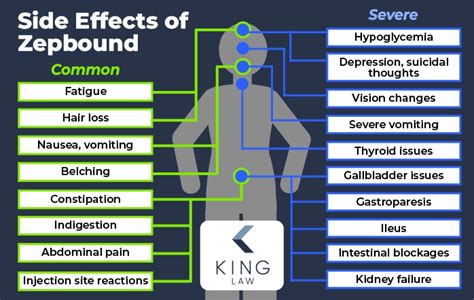Intro
Discover Cyproheptadine side effects, including allergic reactions, drowsiness, and weight gain, and learn about interactions, warnings, and precautions for safe usage.
The importance of understanding the side effects of any medication cannot be overstated, and cyproheptadine is no exception. As a medication primarily used to treat allergic reactions, including hives and itching, as well as for its antihistamine and antiserotonin effects, it's crucial for patients to be aware of what they might experience while on this drug. The awareness of potential side effects empowers individuals to make informed decisions about their health and to recognize when they might need to seek medical attention. In this article, we'll delve into the world of cyproheptadine, exploring its uses, how it works, and most importantly, its side effects.
Cyproheptadine's mechanism of action involves blocking the action of histamine, a substance in the body that causes allergy symptoms, and serotonin, a chemical involved in various bodily functions including mood regulation. By inhibiting these substances, cyproheptadine can provide relief from symptoms such as itching, runny nose, sneezing, and hives. However, like all medications, it comes with its own set of potential side effects, ranging from mild and temporary to more severe and rare reactions. Understanding these side effects is key to managing them effectively and ensuring the safe use of the medication.
The use of cyproheptadine has been widespread due to its efficacy in treating allergic reactions and other conditions such as serotonin syndrome and migraine headaches. Despite its benefits, the medication's side effect profile is something that healthcare providers and patients alike need to be thoroughly aware of. This awareness not only helps in the management of side effects but also in making informed decisions regarding the continuation or cessation of the medication. In the following sections, we will explore the side effects of cyproheptadine in greater detail, including their classification, management, and implications for patient care.
Cyproheptadine Overview

Common Side Effects of Cyproheptadine

Less Common Side Effects
Less common but potentially more serious side effects of cyproheptadine include: - Confusion and disorientation: Especially in elderly patients or those with pre-existing cognitive impairment. - Urinary retention: Due to its anticholinergic effects, cyproheptadine can cause difficulty in urinating. - Constipation: Another anticholinergic side effect that can be uncomfortable for patients. - Blurred vision: Some individuals may experience blurred vision or other visual disturbances.Severe Side Effects of Cyproheptadine

Management of Side Effects
The management of cyproheptadine's side effects often involves a combination of dose adjustment, lifestyle changes, and in some cases, the addition of other medications to counteract specific side effects. For example, patients experiencing dry mouth may be advised to chew sugar-free gum or suck on sugar-free candies to stimulate saliva production. Those experiencing drowsiness may be advised to take the medication at bedtime to minimize its impact on daily activities.Special Considerations

Interactions with Other Medications
Cyproheptadine can interact with a variety of medications, including other antihistamines, sedatives, tranquilizers, and certain antidepressants. These interactions can lead to increased side effects, such as excessive sedation or anticholinergic effects. Patients should inform their healthcare provider about all medications they are taking before starting cyproheptadine.Conclusion and Future Directions

As we move forward in the management of allergic reactions and other conditions treated by cyproheptadine, it's essential to prioritize patient education and empowerment. By providing patients with comprehensive information about the medication, including its benefits and potential side effects, healthcare providers can foster a collaborative approach to care that prioritizes patient safety and well-being.
What is cyproheptadine used for?
+Cyproheptadine is used to treat allergic reactions, including hives and itching, as well as for its antihistamine and antiserotonin effects.
What are the common side effects of cyproheptadine?
+Common side effects include drowsiness, dry mouth, dizziness, headache, nausea, and increased appetite.
Can cyproheptadine be used in children?
+Yes, but with caution, as children may be more susceptible to its central nervous system effects.
Are there any severe side effects of cyproheptadine?
+Yes, severe side effects can include allergic reactions, seizures, cardiac arrhythmias, and psychotic episodes, although these are rare.
How can the side effects of cyproheptadine be managed?
+Management often involves dose adjustment, lifestyle changes, and in some cases, the addition of other medications to counteract specific side effects.
We hope this comprehensive overview of cyproheptadine's side effects has been informative and helpful. If you have any further questions or would like to share your experiences with cyproheptadine, please don't hesitate to comment below. Your input can help others better understand the medication and its effects. Additionally, if you found this article useful, consider sharing it with others who may benefit from this information. Together, we can promote a safer and more informed use of medications like cyproheptadine.
